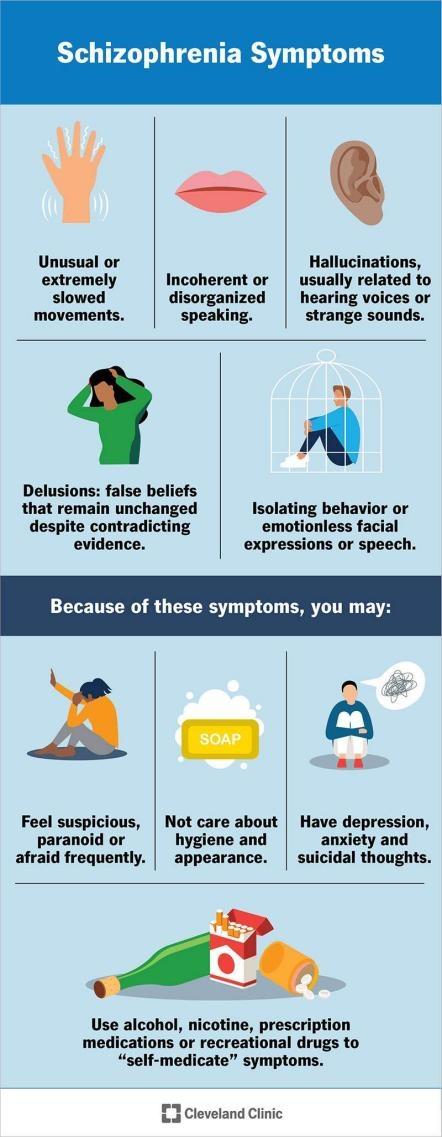Description:
Schizophrenia is a lifelong, severe psychiatric disorder that seriously disturbs thinking, emotion, and behavior. People with schizophrenia appear to have lost touch with reality. They experience “positive” symptoms such as hallucinations(often human voices, sometimes commanding, such as telling people to self-harm or harm others), delusions(false beliefs, like being watched), and confused thinking, and “negative” ones, including an inability to experience pleasure and a severe lack of motivation. Antipsychotic medication, supportive therapy, and social support can improve quality of life. Early treatment matters.
Diagnosis:
- Two or more of the following for at least 1 month (or longer period of time), and at least one of them must be a 1, 2, or 3:
delusions
hallucinations
disorganized speech
grossly disorganized or catatonic behavior
negative symptoms, such as diminished emotional expression
- Impairment in one of the major areas of functioning for a significant period of time since the onset of the disturbance: Work, interpersonal relations, or self-care.
- Some signs of the disorder must last for a continuous period of at least 6 months. This six-month period must include at least one month of symptoms (or less if treated) that meet criterion A (active phase symptoms) and may include periods of residual symptoms. During residual periods, only negative symptoms may be present.
- Schizoaffective disorder and bipolar or depressive disorder with psychotic features have been ruled out:
No major depressive or manic episodes occurred concurrently with active phase symptoms
If mood episodes (depressive or manic) have occurred during active phase symptoms, they have been present for a minority of the total duration of the active and residual phases of the illness.
- The disturbance is not caused by the effects of a substance or another medical condition
- If there is a history of autism spectrum disorder or a communication disorder, the diagnosis of schizophrenia is only made if prominent delusions or hallucinations, along with other symptoms, are present for at least one month.

